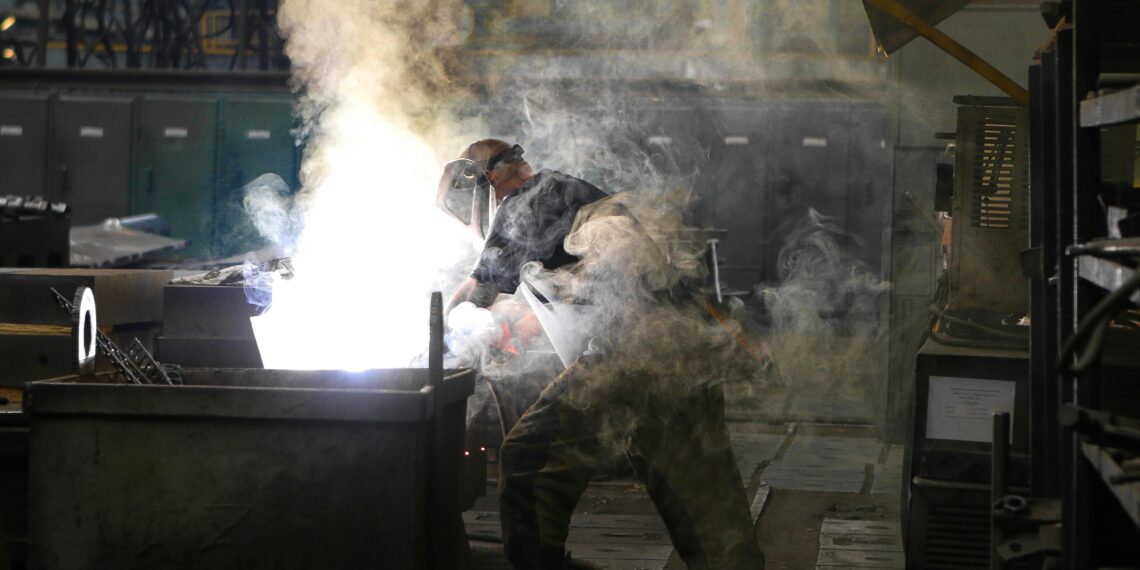Protecting Oklahoma’s Manufacturing Future: Why Congress Must Act Now
Oklahoma’s economy depends on a strong manufacturing sector. Our state’s manufacturers are job creators, economic drivers, and pillars of local communities. But their success didn’t happen by accident—it was fueled by smart tax policies like the Tax Cuts and Jobs Act (TCJA) of 2017. This landmark legislation allowed manufacturers to reinvest in their businesses, expand their workforce, and increase wages for hardworking Oklahomans.
However, this progress is at risk. The TCJA tax cuts are set to expire this year, threatening the very foundation of Oklahoma’s manufacturing resurgence. Without action, manufacturers will face higher taxes, limiting their ability to compete, grow, and create new opportunities. Keeping TCJA in place isn’t just about dollars and cents—it’s about securing the economic vitality of our state and ensuring a brighter future for Oklahoma families.
The Economic Impact: What’s at Stake?
Since the passage of TCJA, the benefits to Oklahoma have been undeniable. The manufacturing sector directly supports 63,000 jobs, providing $5.6 billion in wages to Oklahoma families. The industry also fuels $12.3 billion in GDP, strengthening communities and fostering economic growth across the state.
On a national level, the impact has been just as striking. In 2018 alone, U.S. manufacturers experienced their highest job growth in 21 years, while wages rose at the fastest rate in 15 years. With lower taxes, businesses had the financial flexibility to invest in new technology, facility expansions, and workforce development, all of which fueled a resurgence in American manufacturing.
If Congress allows these tax cuts to expire, the consequences will be severe. Manufacturers will face higher costs, reduced investment, and diminished global competitiveness. This would stall economic progress, making it harder for businesses to create new jobs and forcing tough decisions—whether to cut jobs, slow expansion, or reduce wages.
The Global Stakes: Keeping Oklahoma Competitive
Oklahoma manufacturers don’t just compete with businesses across the U.S.—they compete on the global stage. Countries like China aggressively subsidize their manufacturing sectors, giving their industries a significant advantage. If the U.S. raises corporate tax rates, Oklahoma’s manufacturers will struggle to compete, putting them at a severe disadvantage in an already tough marketplace.
Some of the hardest-hit industries would be advanced manufacturing and biotech, including Oklahoma’s growing biotech sector. We wouldn’t want to stifle that growth, especially as the industry gains momentum and creates new economic opportunities. These industries rely heavily on innovation and reinvestment to stay competitive, and higher taxes would increase operating costs, discouraging investment and potentially leading to job losses, reduced innovation, and even offshoring of critical industries. Allowing this to happen would be an avoidable economic misstep with long-term consequences.
A Call to Action: Congress Must Keep Pro-Growth Policies in Place
Raising taxes in today’s fragile economy would only deepen financial hardships for American families. Inflation has already eroded purchasing power, making it even more critical to maintain tax policies that foster stability and economic growth.
Congress has a clear path forward: Make the 2017 tax cuts permanent. Doing so would provide manufacturers with the long-term stability and predictability they need to continue investing in the U.S. economy. It would help sustain Oklahoma’s economic momentum, protect thousands of manufacturing jobs, and ensure that U.S. manufacturers remain globally competitive.
Oklahoma’s future depends on policies that encourage investment, innovation, and job creation. Congress must act now to safeguard our manufacturing sector and the hardworking families who rely on it. The choice is simple—keep Oklahoma strong, competitive, and open for business.
Chad Warmington is the president and CEO of The State Chamber of Oklahoma

















